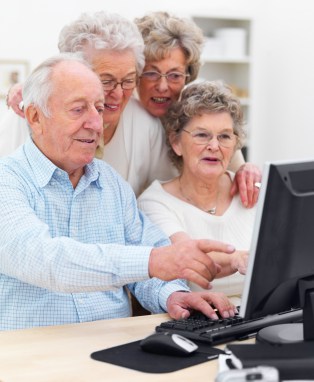What’s the biggest breakthrough in human health in the last couple of hundred years do you reckon? is it antibiotics? Or, perhaps, anaesthetics? Or what about scanner technology? In spite of these significant developments in human medicine, they are not as revolutionary in health terms as the installation of sanitation. Clean water supplies do more to change human health than anything else; much of the problems in “third world” nations can be put down to poor sanitation.

The health developments in the past 100 years of medicine have their place, of course. But when we look at a subject like health we tend to celebrate its success by ignoring contributions from outside the sector. The microwave oven, for instance, was invented over 30 years prior to becoming popular; its popularity arose when more people acquired TV sets, making the need to cook quickly apparent. It wasn’t the subject of cooking that made the microwave popular, but the arena of TV entertainment.
So, the next development in human health may well arise outside medicine itself. And the latest research suggests it may come about online. A new study from the Rush University Medical Center shows that elderly people tend to be ill as a result of self-neglect which is linked to a lack of social networking. It is a significant finding; the numbers of single elderly in society is growing rapidly. Health systems are already finding it difficult to cope with the rise in old people needing treatment.
It may well be that if older people can be encouraged to use online social networks, they will become less isolated, have more self-respect and so the incidence of geriatric disease will be reduced. The most significant change in human health in the next decade may come not from medicine, but from the likes of Twitter and Facebook.
And if you think that’s fanciful thinking, think again. The most rapidly growing sector of usage of Facebook is in women aged over 55. People aged over 55 are much more engaged with Twitter than youngsters who are under 25. Even Time magazine is telling us that Facebook is for old fogies. Everywhere you look, older people are flocking to social networks. So why is that?
For a start, older people tend to me more isolated generally – often living alone – so online social networking provides an easy opportunity to get that much needed “social fix”. It’s much easier for those with degenerative conditions such as severe arthritis to socialise online, than to hobble out to a lunchtime club once a week. It’s much easier for those with social phobia (which gets more likely as we age) to connect with people online, instead of face-to-face. And it’s much easier for those with little cash to get a laptop as a present from their loved ones, than to use their money for social trips they can ill-afford. In other words, there are several reasons why online social networking becomes really suitable for older people.
Of course, it’s not without problems; economics, lack of technological knowledge and fear of the unknown will all combine to help put the elderly off using social networks. But if they do engage with them, it could have a huge impact on human health over the coming years. This week sees the BBC’s annual Children in Need campaign; it may well be that, as important as this is, you could do more for your fellow human beings by encouraging the use of online social networks amongst the elderly. Instead of pharmaceutical companies chasing the next geriatric drug, they might do more good by investing in computers for old people. It’s a thought.
